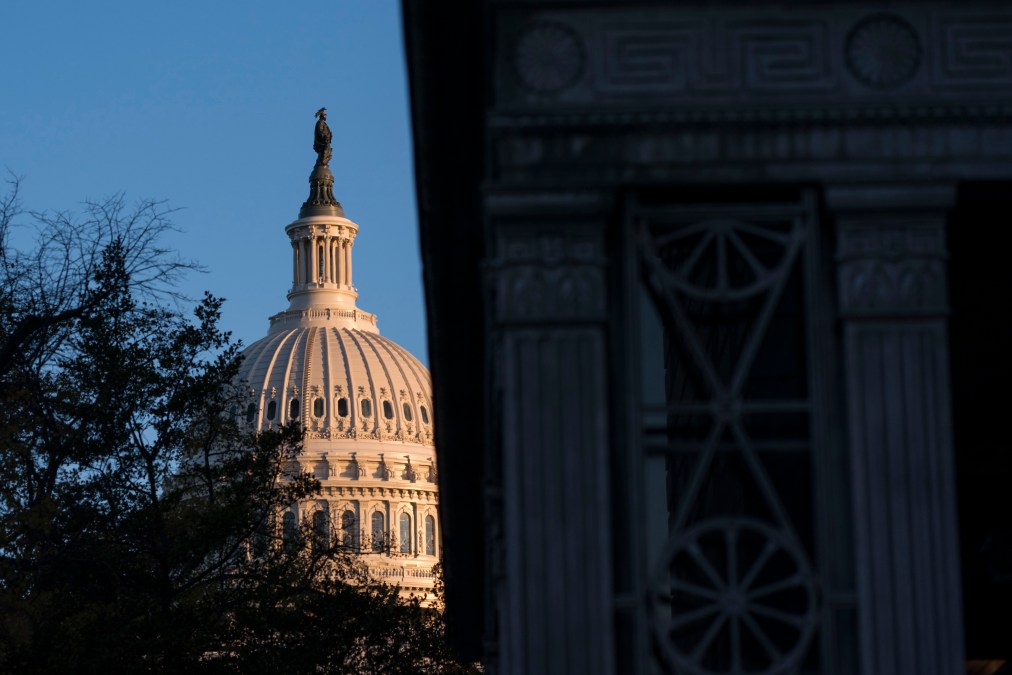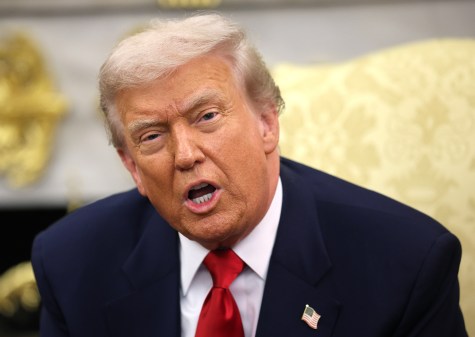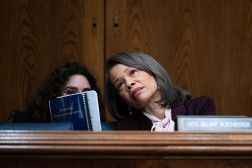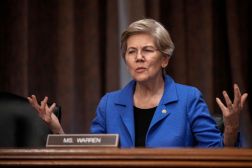House AI task force releases final report, eyes future work with Trump administration

House AI task force members on Tuesday touted the long-awaited release of their report outlining recommendations to Congress on the federal government’s adoption of AI, while confirming that lawmakers are in conversation with the incoming administration about the very same topics.
The nearly 300-page report digs into a plethora of areas that the emerging technology touches, including the government’s own use of AI, along with recommendations concerning AI governance and the AI workforce.
Rep. Jay Obernolte, R-Calif., co-chairman of the task force, said during a press conference Tuesday that legislators and the incoming Trump administration are discussing what could be done to the executive order that the Biden White House released last fall, what items need legislative action and how efforts might be “harmonized” between the legislative and executive branches.
“I am very happy and impressed that the incoming administration is paying so much attention to this issue,” Obernolte told FedScoop after the press conference. “I’m delighted that they’ve named an AI czar — that indicated that we share the belief that AI is going to be transformative and that we share our belief of the need to engage this topic.”
Those comments echo similar sentiments expressed by another task force member, Rep. Kat Cammack, in an interview with FedScoop weeks ago. The Florida Republican said she expects the incoming administration to produce a framework that could look to ensure that large language models aren’t producing unintended results. Cammack called the Biden administration’s approach to the technology “more heavy-handed than I would have liked to have seen,” adding that “all indications from the Trump team, and the people that they’re building in their cabinet, it really reflects a more industry-driven approach.”
“We can’t keep up with how fast the AI industry and the technology is evolving, so it’s better for us to be on the side of … [letting] industry do what they do best, and that’s innovate,” Cammack told FedScoop.
Obernolte confirmed that the task force met with President-elect Donald Trump’s technology transition team last week, and that conversations with the newly appointed AI czar were set to happen this week.
The report, Obernolte said, is “only the beginning” of the AI conversation and will only be effective when future Congresses implement “some of the recommendations that we have created.”
The task force recommended that agency AI policies be required to include “plain language notification and appeals processes” for individuals or organizations that are impacted by determinations that are “substantively and meaningfully augmented by an AI system.” Additionally, the document suggests that lawmakers consider existing laws and policies that pertain to federal IT to avoid inefficiency, confusion, competing requirements and more.
Significantly, the final report also embraces the need to incentivize AI workers to join the federal workforce through the creation of an AI scholarship for service program and “continuing to support the development of AI roles in federal agencies.”
Rep. Bill Foster, D-Ill., told FedScoop that the recommendations in the final draft are mostly about “flagging issues that Congress may want to consider getting involved in.” Foster said that earlier draft versions of the report were “more restrictive in singling out individual pieces of legislation.”
Foster argued for making sure that AI developments and decisions are being made with “a very strong human in the loop,” pointing specifically to the commercial sector’s use of the technology in consumer-facing interactions, like call centers or customer support. Maintaining a consumer-facing operation, he said, is “one of the strongest efficiencies that you get from advanced AI in this area, and I would be disappointed if some of that efficiency wasn’t captured by the federal government.”
As the non-agency Department of Government Efficiency looks to reduce federal government waste through the workforce, Foster said the task force is focused on a bipartisan approach to identifying “common ground.”
“Many of the things that are listed publicly or tweeted out by the members of the DOGE commission … are things that could receive bipartisan support if they’re structured properly,” he said.






